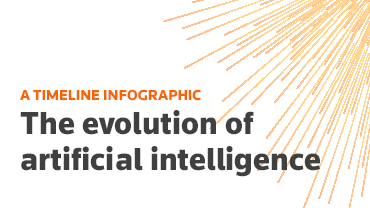On May 20, the latest version of Connecticut’s budget bill (SB877) was released, which includes a provision calling for remittance of sales tax by payment processors within 24 hours of a transaction. The bill would be effective from July 1, 2019, and provides as follows:
(a) The Commissioner of Revenue Services shall require taxpayers required to collect the tax under chapter 219 of the general statutes to enter into an agreement with an electronic payment processing company to provide automated sales tax collection and remittance, whereby such company (1) segregates an amount equal to the sales tax, if any, for each sales transaction payment processed by such company, and (2) remits such amount automatically to the Department of Revenue Services within twenty-four hours after such sales transaction.
(b) The commissioner may issue a request for proposals to evaluate companies that are eligible to provide automated sales tax collection and remittance and shall publish annually a list of such companies that are approved by the commissioner.
The bill does not provide a de minimis threshold for the requirements; it would presumably apply to all sellers regardless of business size or sector. Assuming the provision passes as-is, it’s unclear how taxpayers would be able to comply with the mandate by July 1.
From a technology standpoint, sales tax information typically is not passed through to a payment processor, so systems would first need to be upgraded and tested. In 2017, Massachusetts considered a similar policy (HB3800). The State Tax Research Institute, an affiliate of the Council on State Taxation, studied the Massachusetts proposal and found that “implementing a daily sales tax collection system would cost businesses about $1.2 billion in one-time, non-recurring costs and an additional $28 million in annual recurring costs” (full report available here). Massachusetts eventually abandoned the proposal. Connecticut also considered and rejected daily remittance in past years. The former Connecticut Department of Revenue Services Commissioner, Kevin Sullivan, testified in 2016 that daily remittance was “a solution in search of a problem, or at least it’s the wrong solution,” which would “add significant costs to credit [card] processors, retailers, and ultimately consumers.”
Beyond the issue of technological capabilities and the logistics involved in implementing an approved solution, there are numerous concerns left unaddressed in Connecticut’s legislative language. Who constitutes an “electronic payment processing company” and when is the sales transaction deemed to occur for purposes of the 24-hour remittance period? What reporting information, if any, will pass through to the DRS with the remittance? What happens in the event of a return or refund? How do taxpayers reconcile the remittances on their monthly returns, especially when multiple payment processors are involved? How are overpayments handled? What if the payment processor retains the tax amount but never remits it? What are the penalties and other associated enforcement mechanisms for noncompliance? In a May 22 letter to the Connecticut General Assembly, COST highlighted these and other issues.
Addressing the Tax Gap
The goal of accelerated reporting and remittance is to reduce the “tax gap” – the difference between the expected tax revenue and the actual revenue collected. The annual sales and use tax gap in Connecticut, according to a 2017 DRS report, was $298.8M ($70M of which is expected to be closed through the Wayfair decision and subsequent economic nexus legislation). The Fiscal Note for SB877 estimates that the payment-processor remittance provision would yield $20M of revenue in each of FY 2020 and 2021, though the methodology behind that estimate is not provided. As noted in the COST letter, it’s unclear whether this represents an actual increase in revenue or merely a timing shift.
Connecticut’s 2017 tax gap report proposed a number of ways to close the shortfall, including targeted audits, revoking sales tax permits, and requiring filing of 1099-Ks with the DRS at the same time as the forms are filed with the IRS. Although the state legislature had considered payment-processor remittance legislation in prior years, the 2017 report did not include such a proposal.
A Global Perspective
Digital and real-time reporting and accelerated remittance is gaining steam in many jurisdictions – from SAF-T replacing VAT returns in Poland to the four-day reporting period under Spain’s SII regime and e-invoicing in countries like Italy, Mexico, and Brazil. Even so, the 24-hour timeline would be an outlier, and moving toward real-time remittance without first attempting real-time reporting is outside the norm as well. In the US, no state has yet implemented an e-invoicing or real-time reporting requirement on a widespread basis. However, some states, including Connecticut, require certain delinquent taxpayers to remit taxes on a weekly basis and Washington included a five-year electronic monitoring agreement as a condition of settlement in a “zapper” sales suppression case (State of Washington v. Wong).
As more countries move toward digital reporting, e-invoicing, and accelerated remittance – and companies and technologies evolve to comply with such requirements – we can expect more states to look at these policy options. The system envisioned by Connecticut’s bill is not impossible for states to achieve, but it may be ahead of its time.
Connecticut’s regular legislative session ends June 5; Governor Lamont is considering calling a special session later this year.
About the Author Melissa A. Oaks is a Proposition Manager for Indirect Tax at Thomson Reuters. Prior to this role, Melissa was the Managing Editor of State & Local Tax for Checkpoint Catalyst, where she specialized in complex nexus, apportionment, and e-commerce issues. Before joining Thomson Reuters in 2013, Melissa practiced law in New York. Melissa is a graduate of Cornell University and Columbia Law School and earned an LL.M. in Taxation from NYU School of Law. Twitter: @melissaaoaks








